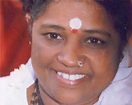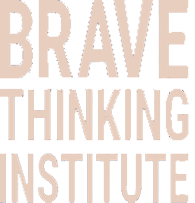 Sudhamani Idamannel (born September 27, 1953), better known simply as Amma (Mata Amritanandamayi), “Mother”, is a Hindu spiritual leader and teacher who is revered as a saint by her followers. Mata Amritanandamayi was born in a remote coastal village in Kerala, South India in 1953.
Sudhamani Idamannel (born September 27, 1953), better known simply as Amma (Mata Amritanandamayi), “Mother”, is a Hindu spiritual leader and teacher who is revered as a saint by her followers. Mata Amritanandamayi was born in a remote coastal village in Kerala, South India in 1953.
Even as a small girl, she drew attention with the many hours she spent in deep meditation on the seashore. She also composed devotional songs and could often be seen singing to the divine with heartfelt emotion. Despite her tender age, her compositions revealed remarkable depth and wisdom.
When she was nine years old, her mother became ill, and Mata Amritanandamayi was withdrawn from school in order to help with household tasks and the care of her seven siblings. As she went door-to-door gathering food scraps from neighbors for her family’s cows, she was confronted with the intense poverty and suffering that existed in her community, and in the world beyond it.
Where Mata Amritanandamayi encountered people in need, she brought them food and clothing from her own home. She was undeterred by the scolding and punishment she received from her family for doing so. She also began to spontaneously embrace people to comfort them in their sorrow. Responding to her affectionate care, they began to call her Amma (Mother).
Amma was deeply affected by the profound suffering she witnessed. According to Hinduism, the suffering of the individual is due to his or her own karma — the results of actions performed in the past. Amma accepted this concept, but she refused to accept it as a justification for inaction. Amma contemplated the principle of karma until she revealed an even more profound truth, asking a question she continues to ask each of us today. “If it is one man’s karma to suffer, isn’t it our dharma (duty) to help ease his suffering and pain?”
With this simple yet profound conviction — that each of us has a responsibility to lend a helping hand to those less fortunate — Amma moved forward with confidence in her life of service and compassionate care for all beings, uniquely expressed by the motherly embrace she offers to all who seek solace in her arms.
In Amma’s community, however, it was not permissible for a 14-year-old girl to touch others, especially men. Amma explains, “In India, women are expected to remain in the background. It is said that ‘Even the walls should not hear them.’ My family could not understand my way of reaching out to people; they had no idea of the spiritual principles.”
But despite adverse reactions, Amma followed her heart, later explaining, “A continuous stream of love flows from me to all of creation. This is my inborn nature. The duty of a doctor is to treat patients. In the same way, my duty is to console those who are suffering.”
Amma says that love expressed is compassion, and compassion means accepting the needs and sorrows of others as one’s own.
In July 2015, Amritanandamayi delivered the keynote address at a United Nations Academic Impact conference on technology and sustainable development, co-hosted by Amrita University. The event was attended by delegates from 93 international universities. In Amritanandamayi’s address, she requested the scientific community to infuse its research with awareness and compassion, stressing the importance of keeping the aim of uplifting the poor and suffering in mind when undertaking technological research.
Darshan
Amṛtānandamayī’s form of giving Darshana is hugging people. As to how this began, Amṛtānandamayī said, “People used to come and tell [me] their troubles. They would cry and I would wipe their tears. When they fell weeping into my lap, I used to hug them. Then the next person too wanted it… And so the habit picked up.”Amṛtānandamayī has embraced more than 33 million people throughout the world for over 30 years.
When asked, in 2002, to what extent she thought her embraces helped the ills of the world, Amṛtānandamayī replied,
“I don’t say I can do it 100 percent. Attempting to change the world [completely] is like trying to straighten the curly tail of a dog. But society takes birth from people. So by affecting individuals, you can make changes in the society and, through it, in the world. You cannot change it, but you can make changes. The fight in individual minds is responsible for the wars. So if you can touch people, you can touch the world.”
Amṛtānandamayī’s Darshana has been the centerpiece of her life, as she has received people nearly every day since the late 1970s. Given the size of the crowds coming to seek Amṛtānandamayī’s blessings, there have been times when she has given Darshana for more than 20 continuous hours.
Teachings
In the book The Timeless Path, Swami Ramakrishnananda Puri, one of Amṛtānandamayī’s senior disciples, wrote: “The [spiritual] path inculcated by Amma is the same as the one presented in the Vedas and recapitulated in subsequent traditional scriptures such as the Bhagavad Gita.” Amṛtānandamayī herself says, “karma [action], jñana[knowledge] and bhakti [devotion] are all essential. If the two wings of a bird are devotion and action, knowledge is its tail. Only with the help of all three can the bird soar into the heights.” She accepts the various spiritual practices and prayers of all religions as but different methods toward the same goal of purifying the mind. Along these lines, she stresses the importance of meditation, performing actions as karma yoga, selfless service, and cultivating divine qualities such as compassion, patience, forgiveness, self-control, etc. Amṛtānandamayī has said that these practices refine the mind, preparing it to assimilate the ultimate truth: that one is not the physical body and mind, but the eternal, blissful consciousness that serves as the non-dual substratum of the universe. This understanding itself Amṛtānandamayī referred to as jivanmukti [liberation while alive]. Amṛtānandamayī said, “Jivanmukti is not something to be attained after death, nor is it to be experienced or bestowed upon you in another world. It is a state of perfect awareness and equanimity, which can be experienced here and now in this world while living in the body. Having come to experience the highest truth of oneness with the Self, such blessed souls do not have to be born again. They merge with the infinite.”
Amṛtānandamayī has recorded more than 1,000 bhajans, or devotional songs, in 35 languages. She has also composed dozens of bhajans and set them to traditional ragas. Regarding devotional singing as a spiritual practice, Amṛtānandamayī says, “If the bhajan is sung with one-pointedness, it is beneficial for the singer, the listeners, and Nature as well. Later when the listeners reflect on the songs, they will try to live in accordance with the lessons enunciated therein.”Amṛtānandamayī has said that in today’s world, it is often difficult for people to attain a deeply focused concentration in meditation. A person can be aided in reaching this level of concentration with bhajans.
Charity work
Embracing the World, Amma’s network of charity organizations, provides food, housing, education, and medical services for the poor. This global network exists in 40 countries around the world and has built and/or supported schools, orphanages, housing, and hospitals throughout India. In the United States, the organization has provided soup kitchens and hot showers for the homeless, books and hospital visits for prison inmates, and support for victims of domestic violence. The organization also raised $1 million in aid for Hurricane Katrina victims. The hospital located on the territory of Amma’s ashram in Kerala offers medical care on a sliding scale, allowing people to pay what they can afford. This is often a minimal percent of the total medical cost.
Learn more at http://amma.org/









































